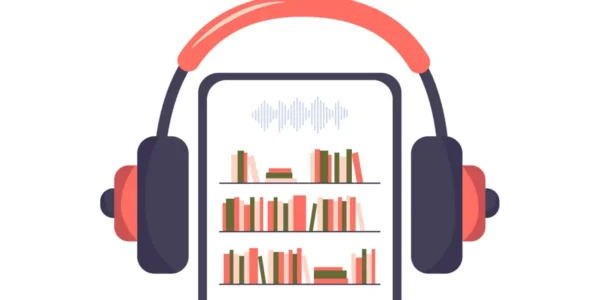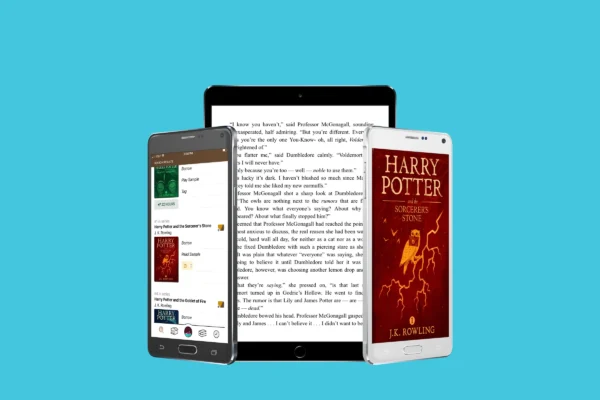
The Revolutionary Impact of Audiobooks on Literature Consumption

In the digital age, audiobooks have emerged as a transformative force in the way we consume literature. No longer confined to the written word, literature has embraced the auditory realm, offering a unique and convenient way to experience stories and acquire knowledge. This shift has significantly impacted our reading habits, allowing us to save time and learn more efficiently.
The Evolution of Audiobooks
The Early Days
Audiobooks began as a medium for the visually impaired, with early recordings on vinyl records and cassette tapes. These initial efforts laid the groundwork for a broader audience, who discovered the convenience of listening to books.
Digital Revolution
The advent of digital technology revolutionized the audiobook industry. With the rise of smartphones and streaming services, audiobooks became more accessible than ever. Platforms like Audible, Google Play Books, and Apple Books have made it easier for users to access a vast library of audiobooks anytime, anywhere.
How Audiobooks Save Time
Multitasking Made Easy
One of the most significant advantages of audiobooks is their ability to fit into our busy lives. Whether commuting, exercising, or doing household chores, audiobooks allow us to multitask, turning idle moments into productive learning experiences.
Faster Consumption
Listening to audiobooks at increased speeds is a popular method to save time. Many audiobook platforms offer speed adjustment features, enabling listeners to consume content at 1.5x or even 2x the normal speed. This can significantly reduce the time required to finish a book.
Enhancing Learning with Audiobooks
Improved Retention and Comprehension
Listening to audiobooks can enhance retention and comprehension. The auditory nature of the medium engages different cognitive processes compared to reading, helping some individuals understand and remember information better.
Accessibility and Inclusivity
Audiobooks make literature accessible to a wider audience, including those with dyslexia, visual impairments, or other reading difficulties. This inclusivity ensures that more people can enjoy and benefit from books.
The Emotional Impact of Audiobooks

Engaging Narration
A skilled narrator can bring a story to life, adding emotional depth and nuance that may be missed in print. The tone, pace, and inflection of a narrator can create a more immersive and engaging experience.
Connection with Content
Listeners often develop a personal connection with the narrator, enhancing their emotional engagement with the content. This connection can make the experience of listening to a book more memorable and impactful.
The Future of Audiobooks
Technological Advancements
As technology continues to advance, the audiobook experience will only improve. Innovations such as AI narrators, interactive audiobooks, and enhanced soundscapes are set to revolutionize the way we listen to books.
Expanding Genres and Formats
The range of available audiobooks is expanding, with more genres and formats being explored. From non-fiction and self-help to fiction and poetry, there is an audiobook for every taste and preference.
Conclusion
Audiobooks have undeniably changed the way we consume literature, offering a convenient and efficient way to engage with books. By saving time and enhancing learning, they have become an invaluable tool in our fast-paced lives. As the audiobook industry continues to evolve, its impact on literature and our daily routines will only grow stronger.
FAQs
How do audiobooks save time?
Audiobooks save time by allowing listeners to multitask and by offering speed adjustment features that let users listen at faster rates.
Can listening to audiobooks improve comprehension?
Yes, audiobooks can improve comprehension and retention by engaging different cognitive processes compared to traditional reading.
Are audiobooks accessible for people with disabilities?
Absolutely. Audiobooks are particularly beneficial for individuals with visual impairments, dyslexia, or other reading difficulties, making literature more inclusive.
What is the emotional impact of audiobooks?
Skilled narration can add emotional depth and nuance, creating a more immersive and engaging experience for listeners.
What does the future hold for audiobooks?
The future of audiobooks looks promising with advancements in AI narrators, interactive features, and an expanding range of genres and formats.
How can I calculate the time to finish an audiobook?
You can use tools available online that calculate the time required to finish an audiobook based on your chosen listening speed.
Written by Billy Bax













































